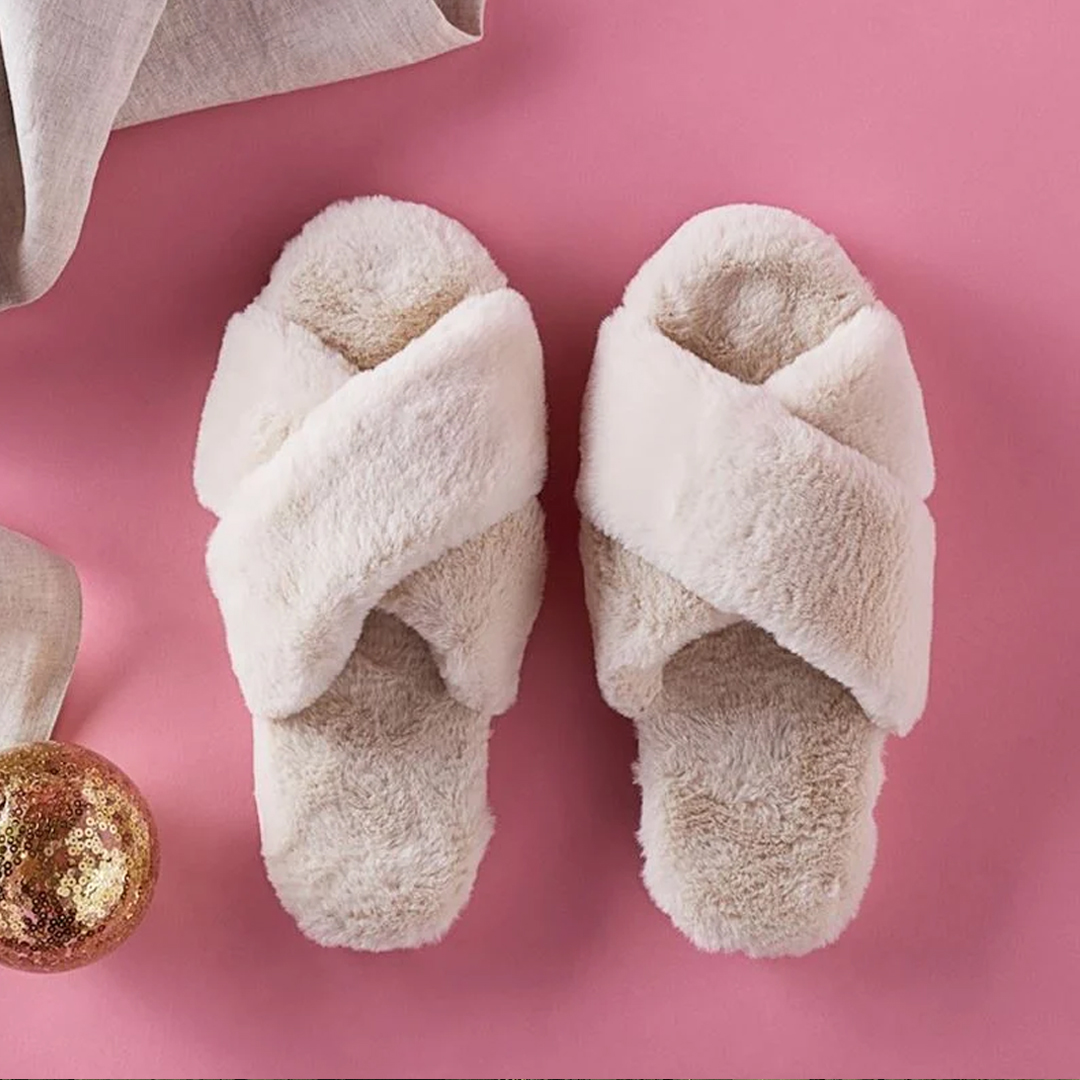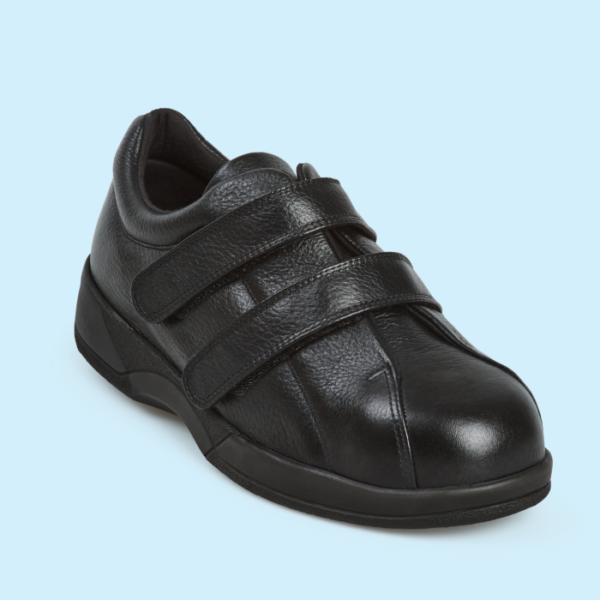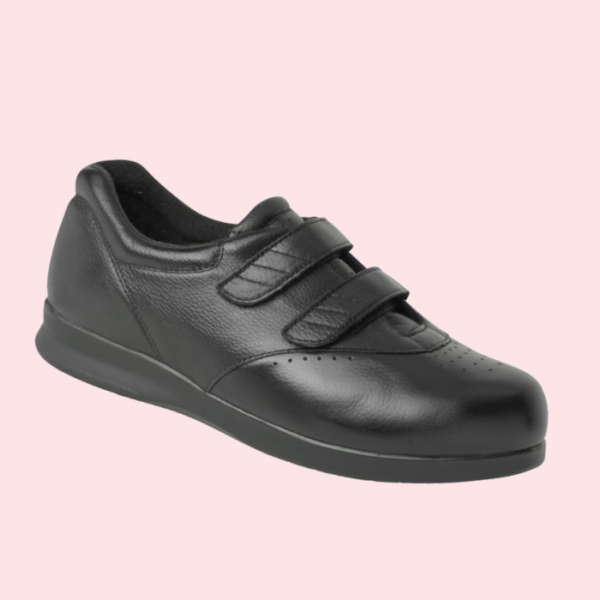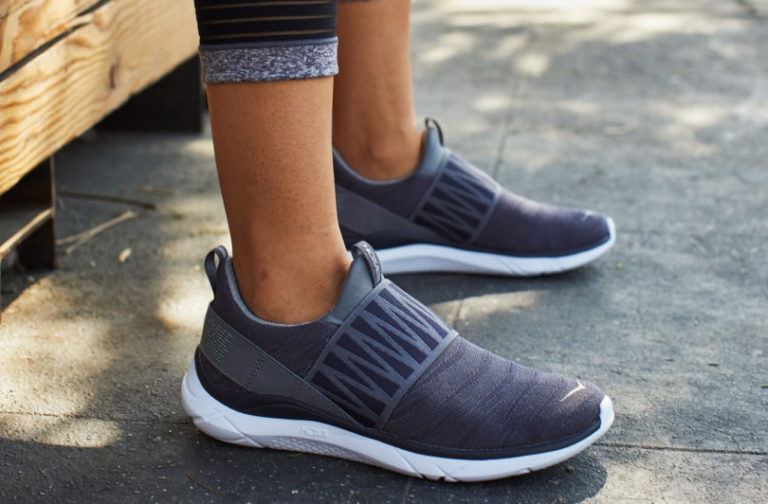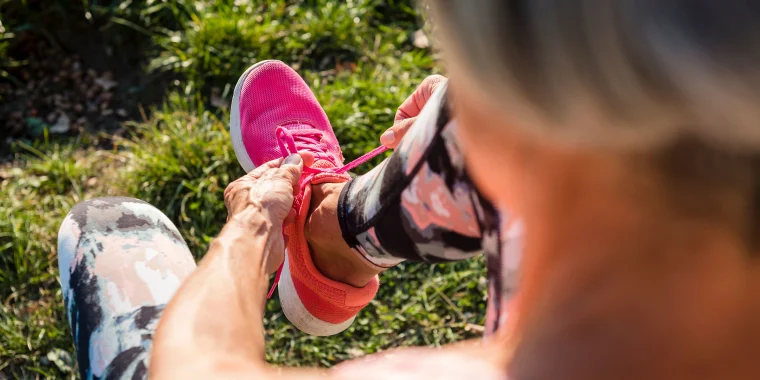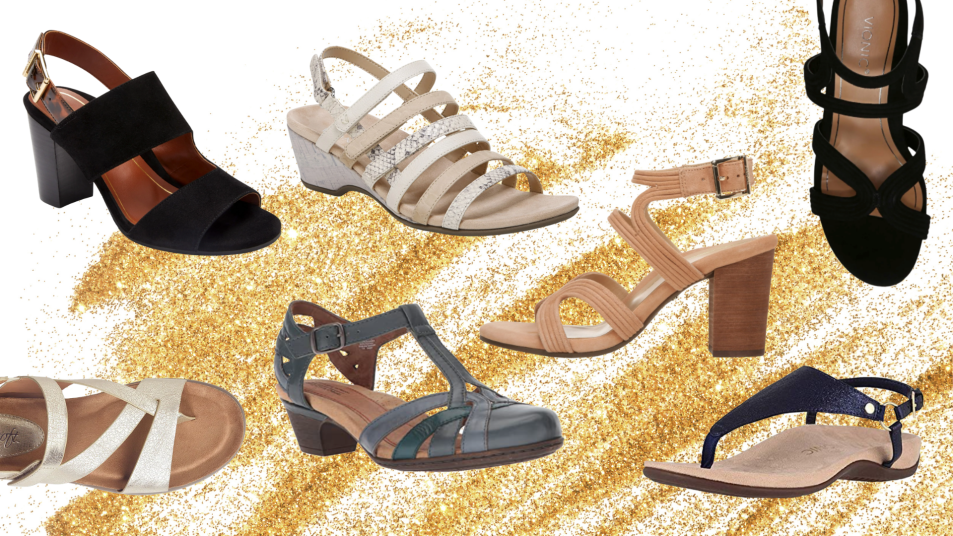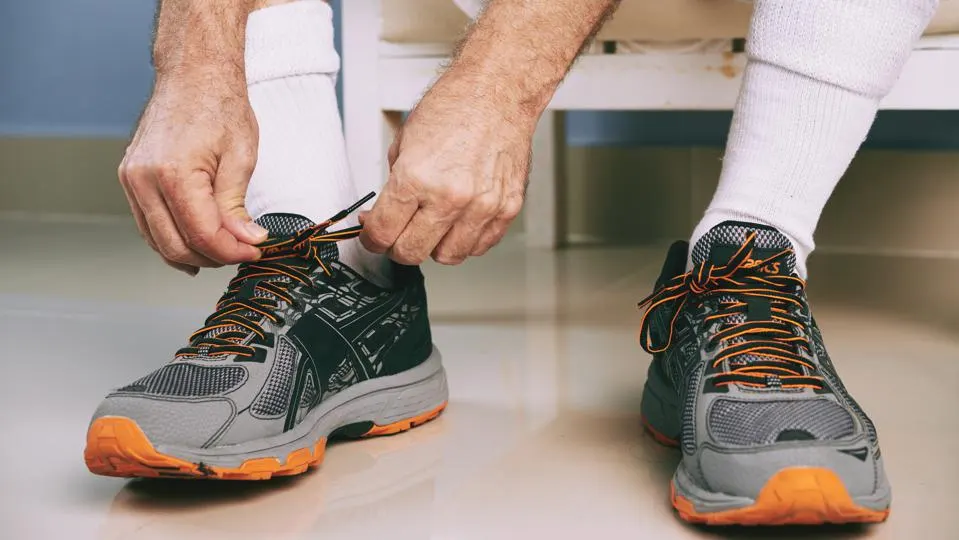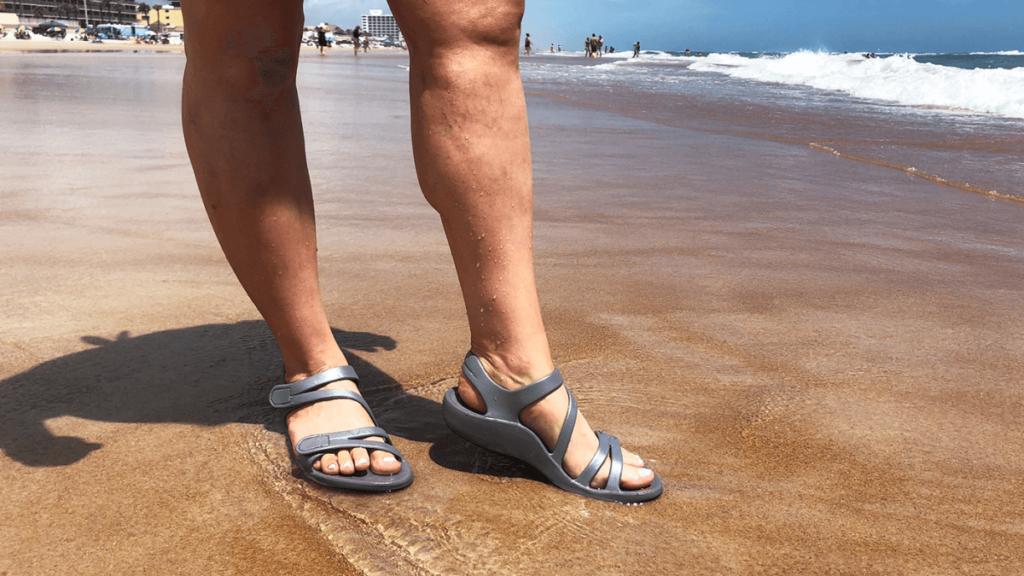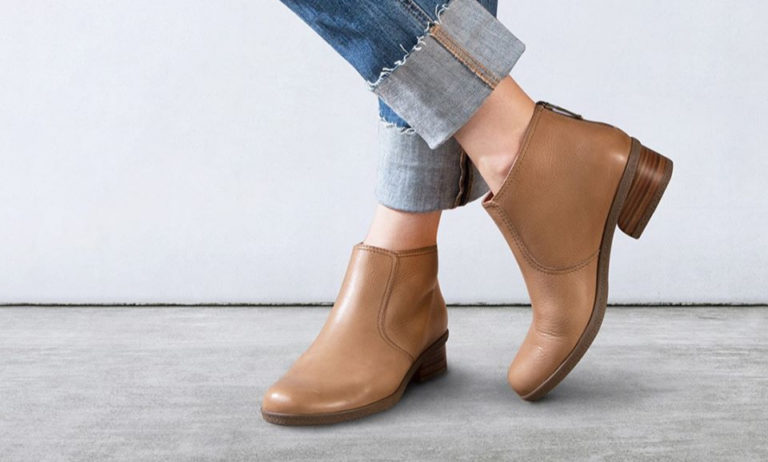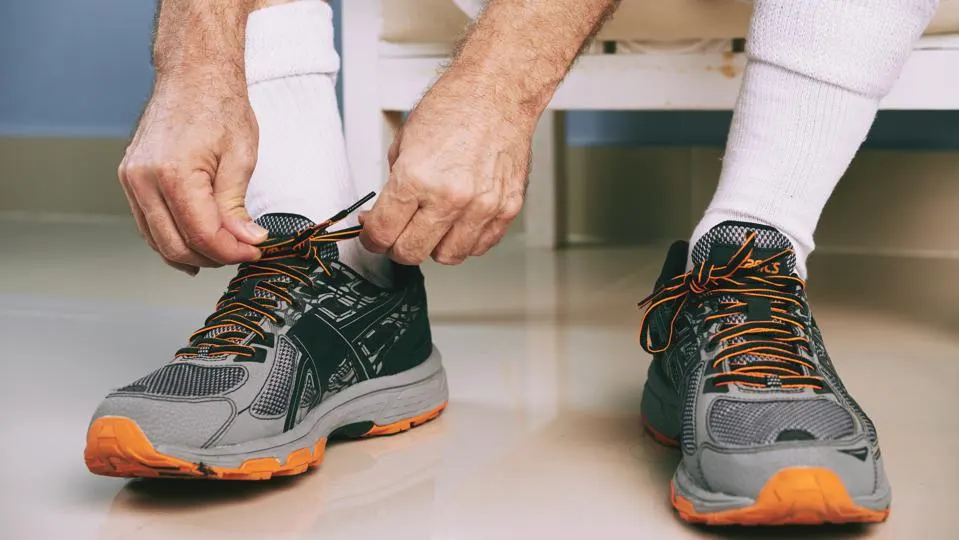Plantar fasciitis is not only common in males, but it is also prevalent among females. Women are more likely to suffer from plantar fasciitis than men, and there are several reasons why. One of the reasons is the structure of women’s feet. Women’s feet tend to be narrower, and the arches are higher than men’s feet. This puts more pressure on the plantar fascia, which can lead to inflammation and discomfort. The solution is wearing appropriate shoes for plantar fasciitis women as suggested by podiatrist.
Impact of High Heels on Plantar Fascia of Females
Another reason is the type of shoes that women wear. High heels and shoes with a narrow toe box can put extra stress on the plantar fascia, leading to inflammation. It’s important to wear shoes that provide adequate support and cushioning, especially if you’re on your feet for extended periods.
Many women love wearing high heels because they add height, elongate the legs, and provide a fashionable look. However, they may be causing damage to their plantar fascia, leading to pain and discomfort. The plantar fascia stretches when you walk, and the tension on this tissue increases as the height of your heel increases. Wearing high heels on a daily basis puts excessive pressure on the plantar fascia, causing it to stretch beyond its natural limits, leading to inflammation and pain.
In fact, studies have shown that wearing high heels on a regular basis is linked to an increased risk of plantar fasciitis and other foot problems. A study published in the Journal of Orthopaedic Research found that women who wore high heels regularly had shorter and thicker plantar fascia than those who wore flat shoes or went barefoot. The shorter and thicker plantar fascia is a common symptom of plantar fasciitis, and it can cause intense pain when walking or standing for long periods.
If you are experiencing plantar fasciitis symptoms, it is best to avoid high heels altogether, as they can make your condition worse. However, if you must wear them, choose heels that are less than two inches in height and have a wider base for better stability. Also, opt for shoes with good arch support and cushioning to help alleviate pressure on the plantar fascia.
Shoes For Plantar Fasciitis Women With Pregnancy
Pregnancy is an exciting time for many women, but it can also be a time of discomfort and pain. One of the most common complaints during pregnancy is foot pain caused by plantar fasciitis. This condition is caused by inflammation of the plantar fascia, the thick band of tissue that runs down the sole of the foot. Pregnancy can make plantar fasciitis worse because of the added weight and pressure on the feet. Pregnant ladies should ask health expert for recommendations on shoes for plantar fasciitis women.
Shoes for Pregnant Ladies
Pregnancy can also contribute to plantar fasciitis in women. As the body changes during pregnancy, the added weight and pressure on the feet can lead to inflammation of the plantar fascia. Wearing the right shoes can make a big difference for pregnant women with plantar fasciitis. Shoes with good arch support and cushioning can help alleviate pain and reduce pressure on the feet. It is also important to look for shoes with a wide toe box to allow for swelling and expansion of the feet.
Flip flops and flat shoes are not recommended for pregnant women with plantar fasciitis. Instead, opt for shoes with a slight heel to provide extra support and reduce stress on the plantar fascia. It is also important to avoid wearing high heels as they can exacerbate the condition.
Physical Therapy for Pregnant Ladies
Physical therapy is an effective treatment option for pregnant women with plantar fasciitis. Stretching and strengthening exercises can help improve flexibility and reduce inflammation. Your doctor may recommend seeing a physical therapist who specializes in prenatal care to help you with these exercises.
Home Remedies for Pregnant Ladies
There are several home remedies that pregnant women can try to alleviate plantar fasciitis pain. Resting the feet and using ice packs can help reduce inflammation and alleviate pain. Foot massages and using a foot roller can also provide relief.
Plantar fasciitis can be a painful and uncomfortable condition, especially for pregnant women. It is important for pregnant women to take care of their feet and wear the right shoes to alleviate pain and reduce pressure on the feet. Physical therapy and home remedies can also be effective in treating plantar fasciitis during pregnancy. If you are pregnant and experiencing foot pain, talk to your doctor or a podiatrist for the best treatment options.
It’s essential for women to pay attention to the signs of plantar fasciitis, such as heel pain and stiffness in the morning, and take action to prevent it. Wearing shoes that provide proper support and cushioning can help reduce the risk of plantar fasciitis. Additionally, incorporating foot stretches and exercises into your daily routine can help keep your feet healthy and reduce the risk of plantar fasciitis.
Overall, it’s important for women to be proactive about their foot health and take steps to prevent and treat plantar fasciitis. With the right shoes and care, women can stay on their feet comfortably and without pain.
Key Features to Look for in Shoes for Plantar Fasciitis
When looking for shoes to help alleviate the discomfort and pain of plantar fasciitis, there are several key features to consider. Here are some important features to look for when choosing shoes for plantar fasciitis:
- Arch Support: Arch support is critical for those with plantar fasciitis, as it helps distribute weight evenly across the foot and reduces pressure on the heel. Look for shoes that have a built-in arch support or that have removable insoles so you can add your own.
- Cushioning: Adequate cushioning helps absorb the shock of impact when walking or running, which can reduce the stress on the plantar fascia. Shoes with extra cushioning in the heel and forefoot can be particularly helpful for those with plantar fasciitis.
- Stability: Shoes with a stable base can help reduce the likelihood of foot pronation (rolling inward) and supination (rolling outward), which can lead to plantar fasciitis. Look for shoes that have a wide base and good support around the ankle.
- Flexibility: Shoes that are too stiff can restrict the natural movement of the foot, which can aggravate plantar fasciitis. Look for shoes that have some flexibility in the sole and upper to allow for a more natural range of motion.
- Toe Box Width: Shoes that are too narrow in the toe box can put pressure on the toes and aggravate plantar fasciitis. Look for shoes that have a wide toe box to allow for natural toe splay.
- Breathability: Shoes that don’t breathe well can cause your feet to sweat, which can make plantar fasciitis symptoms worse. Look for shoes that are made of breathable materials like mesh or leather.
By taking these key features into consideration when selecting shoes for plantar fasciitis, you can find a pair that will help alleviate your symptoms and allow you to stay active and comfortable.
Remember, when choosing shoes for plantar fasciitis, it’s important to look for features like good arch support, ample cushioning, and a comfortable fit. It’s also a good idea to try on shoes at the end of the day when your feet are at their largest, and to walk around in them to see how they feel. With the right shoes, you can reduce pain and inflammation caused by plantar fasciitis and speed up your recovery.
FAQs on Shoes for Plantar Fasciitis
- What makes shoes for plantar fasciitis different from regular shoes?
Shoes for plantar fasciitis have extra cushioning, arch support, and shock absorption. These features help reduce pressure on the heel and arch, which are the most affected areas for people with plantar fasciitis.
- How do I know if a shoe is suitable for plantar fasciitis?
Look for shoes with a firm heel, a supportive arch, and a flexible sole. Also, make sure the shoe provides ample cushioning, especially in the heel area. Try to avoid shoes with high heels or those with minimal arch support.
- Can I wear flip-flops or sandals if I have plantar fasciitis?
Flip-flops and sandals do not offer much support or cushioning, making them a less-than-ideal choice for people with plantar fasciitis. However, some manufacturers offer sandals with arch support and heel cups, which can help reduce discomfort.
- Are custom orthotics necessary for people with plantar fasciitis?
Custom orthotics are not always necessary, but they can help provide extra support and cushioning. If you have severe or chronic plantar fasciitis, your doctor may recommend custom orthotics to help alleviate pain and prevent further damage.
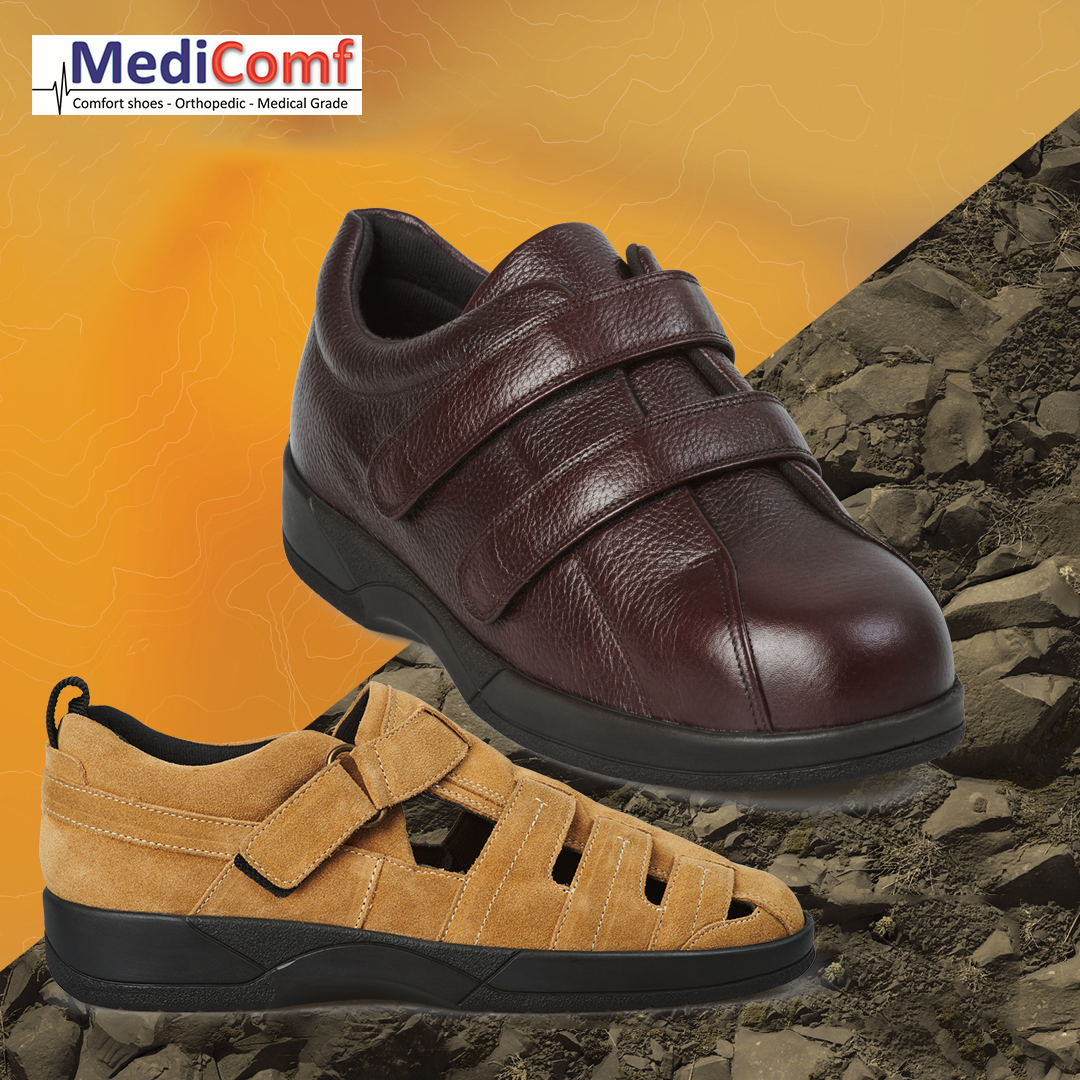
Shoes
